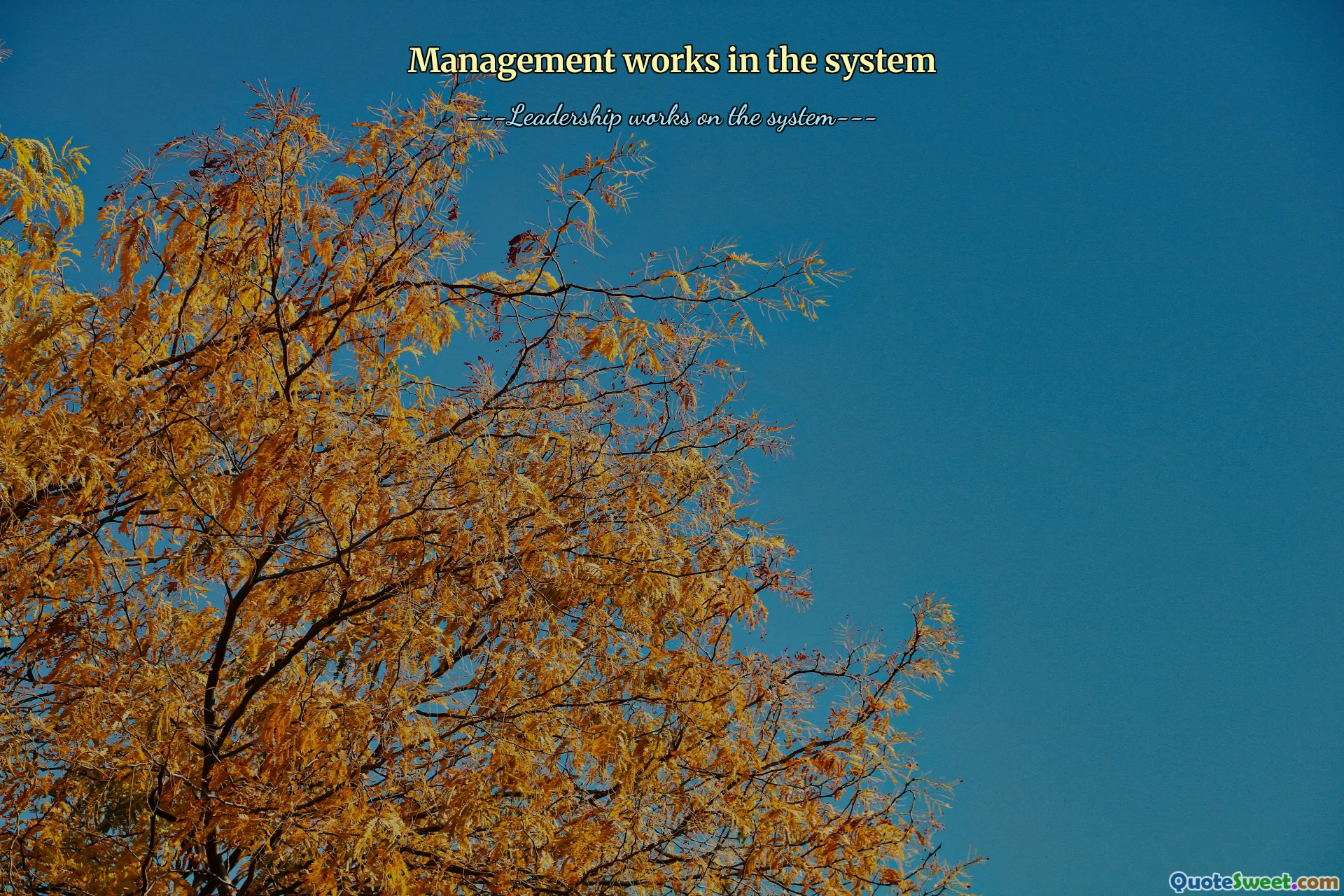
Management works in the system
This quote underscores the intrinsic relationship between management and the systems within which it operates. It suggests that effective management is not solely about individual decisions or isolated actions; rather, it fundamentally depends on the structures, processes, and frameworks that constitute the organizational system. When considering management, it's important to recognize that the system's design—its workflows, communication channels, resource allocation, and policies—either empowers or constrains managerial effectiveness. In modern organizations, systems thinking becomes crucial because it emphasizes viewing the organization holistically, understanding how different parts interact, and recognizing that solutions often require system-wide adjustments rather than isolated fixes.
By focusing on the system, managers can identify root causes of problems that might otherwise be mistaken for individual failings. For example, a decline in productivity may not be purely due to employee performance but could stem from flawed processes or inadequate resource availability within the system. Therefore, improving outcomes necessitates examining and modifying the system itself. This approach aligns with the principles of continuous improvement and adaptability, which are vital in rapidly changing business environments.
Furthermore, acknowledging that management works within a system encourages leaders to foster a culture of collaboration and process-awareness. It implies that successful leadership involves designing and maintaining effective systems, rather than merely issuing directives. Ultimately, this perspective shift can lead to more sustainable and scalable success, as organizations become better equipped to adapt and evolve.
Leadership, therefore, must prioritize system thinking—seeing beyond individual components to the interconnected whole—to create resilient and efficient organizations. Understanding that management functions within system parameters helps in crafting strategies that leverage systemic strengths and address vulnerabilities, leading to more consistent and long-term achievements.











